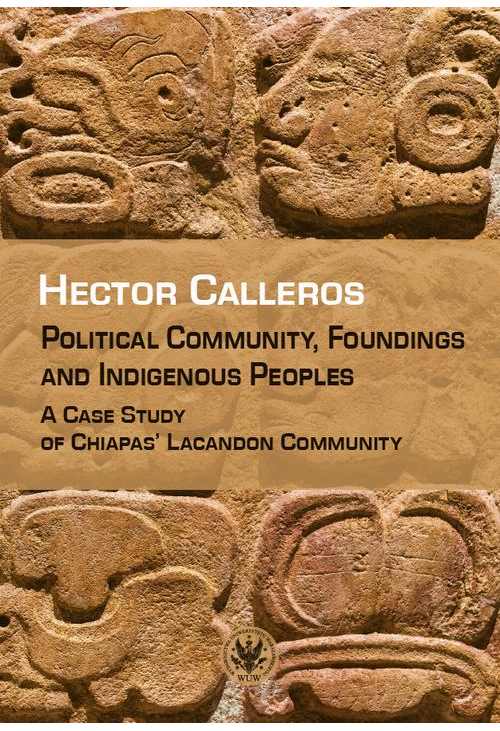
- Za darmo
ebook Political Community, Foundings and Indigenous Peoples A Case Study of Chiapas\' Lacandon Community
Odkryj fascynujący świat „Political Community, Foundings and Indigenous Peoples” autorstwa Hectora Calleros – wyjątkowy ebook, który zabierze Cię w podróż po złożonych systemach politycznych i znaczeniu ludności rdzennej. Ten ebook to nie tylko głęboka analiza społeczności Lacandon w Meksyku, ale także klucz do zrozumienia roli rdzennych mieszkańców we współczesnym świecie.
Hector Calleros, wybitny badacz i ekspert w dziedzinie studiów nad ludnością rdzenną, przedstawia w swojej książce analizę pojęcia „wspólnoty politycznej” i jej konstytutywnych elementów. Przez pryzmat społeczności Lacandon, Autor bada terytorium, instytucje i organizację społeczną, kulturową i gospodarczą tej unikalnej społeczności.
Ta publikacja z 2024 roku wydana przez Wydawnictwa Uniwersytetu Warszawskiego w języku angielskim jest nie tylko naukowym studium przypadku, ale także praktycznym narzędziem do zrozumienia zasad samostanowienia, autonomii i zgody. Autor nawiązuje do Deklaracji ONZ o prawach ludności rdzennej (UNDRIP), co czyni tę książkę niezwykle aktualną i ważną.
Dostępny w formacie ebook, ten tytuł jest idealnym wyborem dla studentów, badaczy i wszystkich zainteresowanych rolą ludności rdzennej we współczesnych społeczeństwach. Sklep z e-bookami oferuje łatwy dostęp do tego ebooka, który można kupić i pobrać w formacie PDF.
Czytelnicy znajdą tu nie tylko solidne podstawy teoretyczne, ale także praktyczne zastosowanie omawianych koncepcji. To doskonałe źródło wiedzy dla osób poszukujących literatury pięknej, bestsellerów ebookowych i najlepszych publikacji cyfrowych.
Kup e-booka już dziś i dołącz do grona czytelników, którzy doceniają głębię i aktualność tej wyjątkowej publikacji. Odwiedź nasz sklep z ebookami i pobierz „Political Community, Foundings and Indigenous Peoples” – Twój nowy must-read w formacie elektronicznym.
Spis treści ebooka Political Community, Foundings and Indigenous Peoples
List of acronyms, abbreviations and terms 11Acknowledgements 15
Introduction: An Indigenous Community in the Lacandon Rainforest (1972–2023) 17
A Multidisciplinary Approach to Studying Indigenous
Peoples 19
The Case Study 22
The Lacandon Community 22
The Lacandon People 23
A Periodisation of the History of the Lacandón
Community 25
The structure of this book 29
SECTION I: FRAMING THE DISCUSSION ON INDIGENOUS PEOPLES IN MEXICO
Chapter 1. Political Communities in Indigenous Lands 33
1.1. Introduction to Indigenous and Political
Communities 33
1.2. Land and Indigenous Communities in Mexico 33
1.3. Frameworks to Examine Indigenous Communities 35
1.3.1. Mexico’s Constitution 35
1.3.2. The Indigenous and Tribal Peoples
Convention, 1989 (No. 169) 38
1.3.3. United Nations Declaration on the Rights of
Indigenous Peoples (UNDRIP) 41
1.3.4. The Indigenous Community as a Collective 45
1.4. The Constitutive Elements of a Political
Community 48
1.4.1. The Demos 48
Kinship 48
The Open Community 50
The ‘Dual Thrust’ 52
1.4.2. Territory 53
1.4.3. Institutions 56
1.5. Chapter Conclusions 57
Chapter 2. Indigenous Land Rights in Mexico: Threats and Challenges 61
2.1. Introduction 61
2.2. The Agrarian System 62
2.2.1. The Legal Framework of the Agrarian System
63
2.2.2. Indigenous Land 65
2.2.3. The Centrality of Human Rights 66
2.3. Threats and Challenges to Indigenous Lands 68
2.3.1. Energy and Megaprojects 70
2.3.2. Mining in Indigenous Territories 71
2.3.3. Conservation 73
2.4. Recent Developments 74
2.5. Chapter Conclusions 77
Chapter 3. Indigeneity and State Formation in the Lacandon Rainforest 79
3.1. Introduction 79
3.2. Three Indigenous Groups 80
3.2.1. Lacandons 81
3.2.2. Chols 82
3.2.3. Tzeltals 82
3.3. Polity Formation in the Lacandon Rainforest 83
3.3.1. The Nineteenth Century 85
3.3.2. Large Estate Formation 86
3.3.3. The End of the Large Estates and Private
Lumbering (1917–1949) 87
3.4. Chapter Conclusions 91
SECTION II: WHAT IS A POLITICAL COMMUNITY?
Chapter 4. A People 95
4.1. Introduction 95
4.2. The Comunidad Zona Lacandona (Lacandon
Community) 95
4.3. The Debate on the Identify of the Lacandons 103
4.4. The Creation of an Agrarian Community 105
4.5. The Creation of a Multi-ethnic Agrarian
Community 108
4.6. Opposition to Land Restitution – Arguments 109
4.7. Opposition to Land Restitution – Conflicts 112
4.8. Recapitulation 113
4.9. Conflict over Land 114
4.10. Chapter Conclusions 119
Chapter 5. Territory, Land and Natural Resources 121
5.1. Introduction 121
5.2. Indigenous Land Restitution and Traditional
Occupation in Lacandonia 124
5.3. The Principles of Traditional Occupation and
Land Restitution 124
5.3.1. The Inter-American Human Rights Instruments
124
5.3.2. Mexico’s Land Reform (1915–1992) 127
5.3.3. Land Restitution within Mexico’s Land
Reform 127
5.4. Traditional Occupation 129
5.4.1. The Opinion of the Inter-American system
129
5.4.2. Lacandon Traditional Occupation 129
5.5. Public Policy: Land Conservation and Development
131
5.5.1. Environmental Conservation Public Policy
131
5.5.2. Indigenous Lands and Environmental Policy
132
5.5.3. Demographic Dynamics 136
5.5.4. The Economy 139
5.6. Chapter Conclusions 140
Chapter 6. Indigenous Self-Government and the ‘Dual Thrust’ 141
6.1. Introduction 141
6.2. The Lacandon Community and Self-Government 142
6.2.1. Pre-eminence and Representation 143
6.2.2. Pre-eminence and Power Sharing 144
6.2.3. Decision-Making 145
The General Assembly of Members 145
The Electoral Function of the General Assembly
146
The Decision-Making Function of the General
Assembly 148
6.2.4. Geographical Realities and Tiers of Self-
government 149
6.3. The Dual Thrust: Indigenous Self-government and
Intra-community Politics 151
6.4. The Dual Thrust: Indigenous Governmentality 154
6.4.1. Management Capabilities 154
6.4.2. Accountability 156
6.4.3. Agenda 157
6.5. The Dual Thrust: Indigenous Self-government and
the Larger Society 159
6.5.1. Power 159
6.5.2. Arenas 160
6.5.3. Politics and Control Politics 161
6.5.4. Contentious Action 163
6.6. Chapter Conclusions: Communal Self-Government
164
SECTION III: POLITY AND INDIGENOUS COMMUNITY
Chapter 7. Indigenous Peoples and Polity Formation 169
7.1. Introduction 169
7.2. Approaches to the Study of Political Foundings
170
7.3. The Common View of ‘Founding’ 173
7.4. Questioning Founding Assumptions 175
7.4.1. The Underauthorized Political Order 175
7.4.2. Reassessing the Problems of Founding 176
7.5. An Alternative Approach to Political Origins 177
7.6. UNDRIP and a Critique of the Foundings-Beyond-
Origins Framework 178
7.6.1. The People: Plurality, Collective Rights,
and Equality 179
7.6.2. The Ecosystem 179
7.6.3. Time: Contingency, Perpetuity and
Continuity 181
7.6.4. The People’ and the International Order 182
7.6.5. Contradiction and Limitations 183
7.7. Plurality: An Analytical Framework 184
7.8. Chapter Conclusions 186
Chapter 8. Overall Conclusions 187
Bibliography 191
Primary sources 191
Interviews 196
Secondary sources 197
Additional sources 213
Szczegóły ebooka Political Community, Foundings and Indigenous Peoples
- Wydawca:
- Wydawnictwa Uniwersytetu Warszawskiego
- Rok wydania:
- 2024
- Typ publikacji:
- Ebook
- Język:
- angielski
- Format:
- epub mobi pdf
- Liczba stron:
- 216
- Miejsce wydania:
- Warszawa
- ISBN dla wersji papierowej:
- 9788323564461
Recenzje ebooka Political Community, Foundings and Indigenous Peoples
-
Reviews (0)

Na jakich urządzeniach mogę czytać ebooki?
- Za darmo


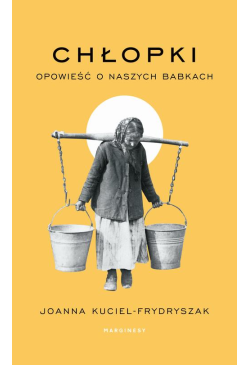

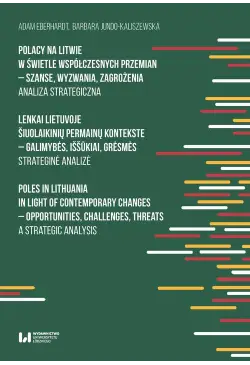
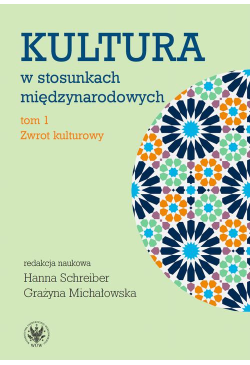
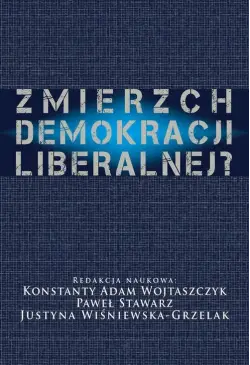

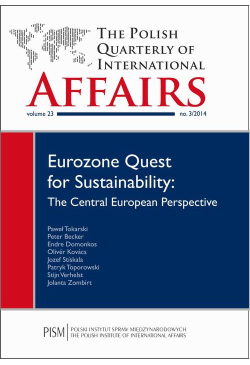
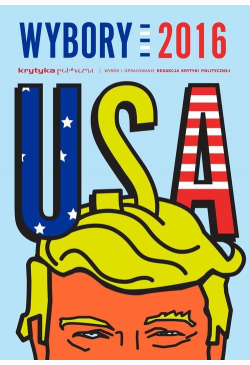
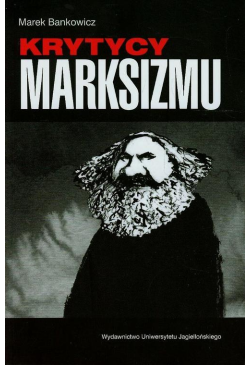
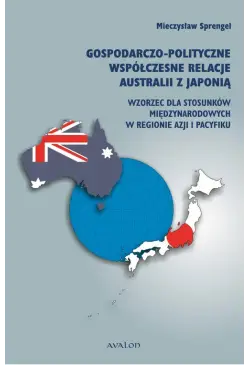
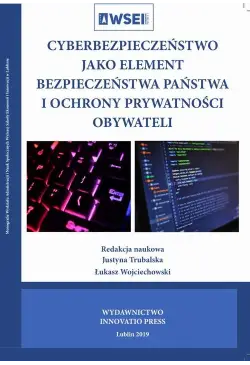


@CUSTOMER_NAME@
@COMMENT_TITLE@
@COMMENT_COMMENT@